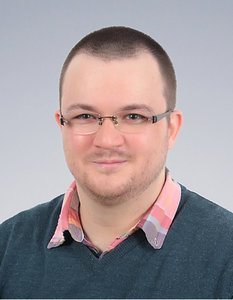
Bryan Hale has been teaching in Korea for longer than he likes to admit to his students! He is currently at Yeongam High School in Jeollanamdo, and has experience teaching in public and private settings with all age groups, teenagers in particular. In 2020, Bryan completed a Master of Applied Linguistics (TESOL) with the University of New England in Australia. His master’s dissertation investigated the role of playfulness in EFL speaking activities in the Korean EFL classroom. Bryan has served in various roles throughout KOTESOL, including as national president (2021), first vice-president (2020), Gwangju-Jeonnam chapter president (2019-2020), and national co-facilitator of the Reflective Practice Special Interest Group (2016-2020). He is passionate about professional development, and enjoys presenting on a range of topics.
Topics:
Sparking Spontaneity: Playfulness in the EFL Classroom
Have you ever had a teaching experience like this? You set a communication task - perhaps you ask students to discuss a topic in groups, or act out a scenario in pairs - and students half-heartedly carry out the task with a rigid focus on accuracy and finishing up quickly, without the richness and authenticity you were hoping for. Maybe you feel some tension between you and your students, and also between traditional and communicative teaching approaches!
This workshop introduces the concept of language play and suggests that playful approaches to language practice offer some ways forward beyond these tensions, by helping our learners to use English in richer, more exuberant ways. We will try out several activities which encourage spontaneous language play, and we will also discuss the nature of playfulness and some of its potential benefits for our classrooms. These include balancing form and meaning, promoting experimentation and novelty, and allowing motivations to emerge for learners who do not use English outside school. This workshop includes activity ideas which can be adapted for all age levels, from a presenter especially experienced in teaching reluctant adolescents.
An interactive workshop (in-person) suitable for teachers of all settings and experience levels.
Three ‘L’s to Help With Teaching Large Classes
Large classes can be truly challenging to work with, especially when we want students to be actively communicating rather than passively receiving information. It’s easy to say, “Put them in pairs and groups,” but it’s harder to actually get those pairs and groups on-task! This workshop will help participants develop strategies for teaching large classes by focusing on three concepts: listenership, language play, and leadership. We will explore ‘listenership’ and how communicative listening can be fruitful even when students don’t produce as much output as we would prefer. We will consider ‘language play’ as pleasurable, flexible uses of language that can help to inspire more interaction. Finally we will discuss ‘leadership’ in terms of finding a happy fusion of student-centeredness and the expectations of the Korean classroom. Hopefully, participants can leave this workshop feeling more optimistic about their larger classes!
An interactive workshop (in-person or online) suitable for teachers of all settings and experience levels, especially newer teachers in public schools.
Creative Writing as a Path Into Academic Writing
Writing can be a frustrating exercise in English language classes, for students and for teachers. Students might not be very personally invested, even if teachers have encouraged them to write about topics that interest them and to write with a personal voice. Different cultural approaches to writing and rhetoric can lead to miscommunication rather than illuminating exchanges. It’s easy for students and teachers to retreat into ‘just because’: “But teacher, there’s nothing more to write. The reason is, just because!” “You have to explain this more, the way I’m telling you to explain it more, just because!”
Story writing can offer an alternative, more fruitful path into academic writing. Story writing can help students to feel ownership of writing and to be more engaged with the content of their writing. Story writing can help students to think consciously about structure and how to build cohesive, coherent texts in English. Story writing offers lots of opportunities for purposeful and creative revision. And story writing can encourage more authentic negotiation and exchange between students and teachers.
In this interactive workshop, participants will try out several hands-on writing activities aimed at increasing learners’ investment in the language and processes of writing, and reflect on whether creative writing might help their own students’ English writing journeys.
An interactive workshop (in-person or online) suitable for teachers in all settings, but especially secondary school and university teachers.
What is Play, Really, and Can It Support Us?
You've probably heard platitudes about the value of play - for learners, for learning, and even for our own self-care. These messages have some justification, but in fact scholarly approaches to play have found it to be more complex and less straightforwardly beneficial than we might assume. Play shades off into diverse phenomena, from art to violence. Its relationship to human development is often obscure. Play is slippery, paradoxical, and can even be dangerous. However, it also offers us opportunities to discover new possibilities and connections, and to embrace flexibility, spontaneity, and joy.
So, how should we best understand play, and can we use it to help us and our learners thrive? In this discussion-focused workshop, we will consider some different understandings of play, including from ethology and psychology, literary and cultural studies, and applied linguistics. We will reflect on the role of play in our classrooms and also in our own lives, and reconsider some of its opportunities and dangers. This session will be relevant to anybody interested in reflecting on the nature of play both in and beyond the classroom, and aims to help attendees find new ways to think about what play offers us as teachers, learners, and people.
A discussion-focused workshop (in-person or online) suitable for teachers, learners, and others.
Other presentation topics available, including:
- Teaching teenagers
- Adapting communicative language teaching (CLT) to the Korean classroom
- Reflective practice
- Pedagogic communication (communication with learners, colleagues, and others about learning expectations)
- Classroom management


